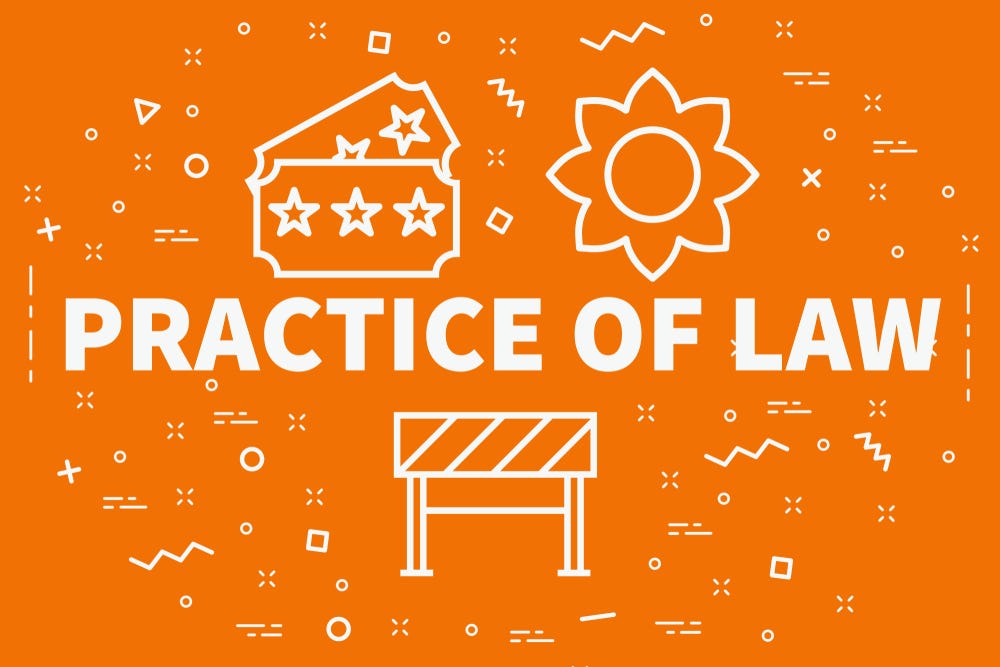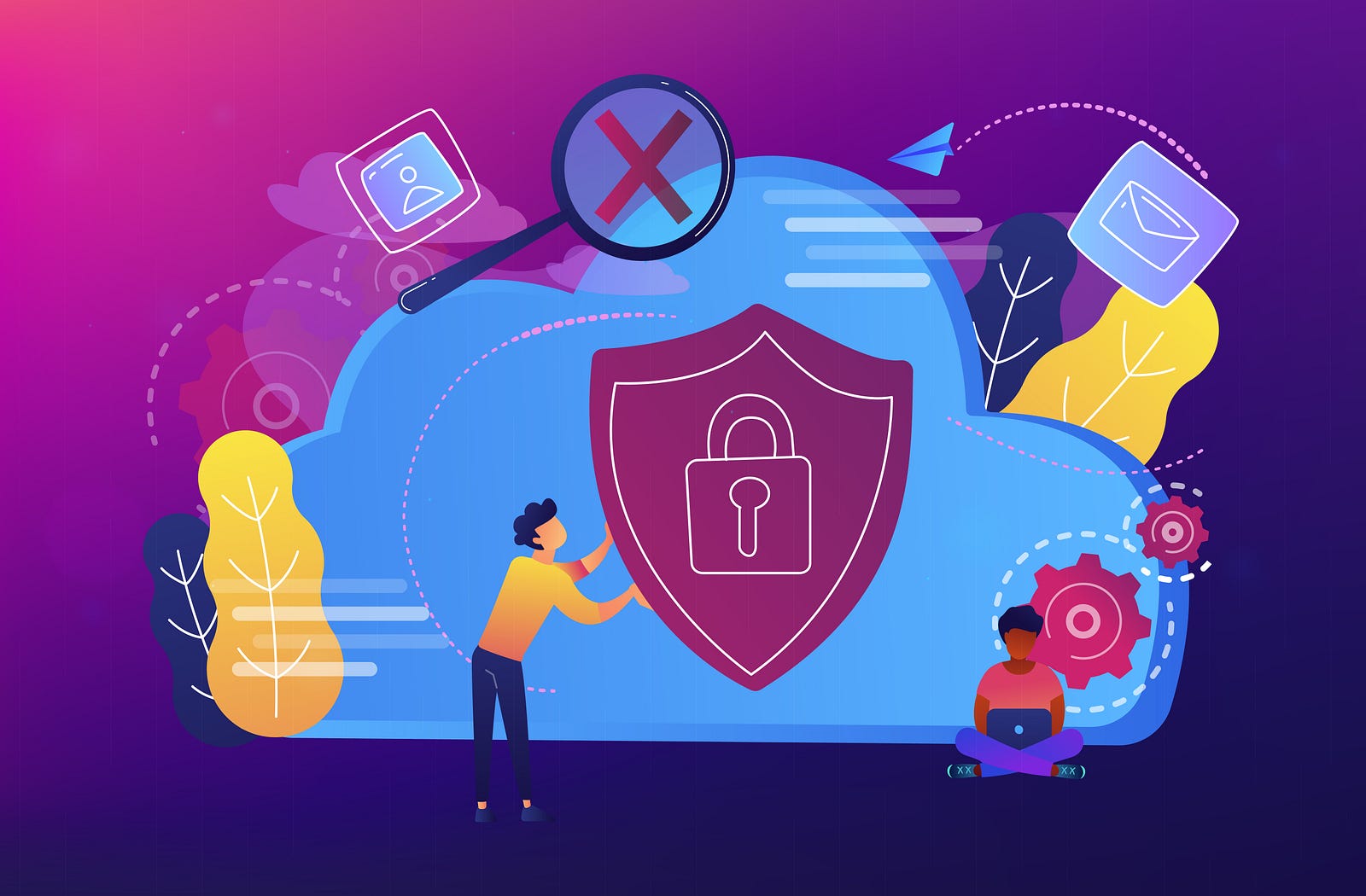By Ian C. Schick, PhD, JD, CEO & Co-founder of Specifio (originally posted here on Oct. 31, 2018)
Numerous third-party legal software providers have been recently accused of unauthorized practice of law (UPL). In 2011, LegalZoom, a trailblazer in personalized online legal solutions and documents for consumers, was entangled in a class action lawsuit alleging the service provider was engaged in UPL, which eventually led to a settlement. Some, including the North Carolina State Bar, have argued that by providing guidance and reviewing documents, LegalZoom serves as more of a legal advisor than a simple document provider, thus creating a UPL issue. In 2016, however, the North Carolina legislature ruled that the practice of law does not include software that generates legal documents based on a user’s response to a legal questionnaire. DoNotPay, a digital platform used for submitting small claims that has taken the legal industry by storm, has been accused by many of violating the UPL rule. However, many have argued that the UPL rule is simply a well-disguised barrier or tactic utilized to protect a traditionally risk-averse legal sector from innovative technology and other market disruptions.

We are already seeing focussed interest and new legislation aimed at addressing the high volume and precedence of UPL issues within non-law-firm legal services providers. In 2007, the United Kingdom (U.K.) liberalized their legal services market by passing the Legal Services Act. Practicing as part of an alternative business structure (ABS), nonlawyers are permitted to hold ownership interest and participate in the delivery of legal services. In 2014, the ABA Commission on the Future of Legal Services was created and tasked with examining how legal services are delivered and holding open forums for how to alleviate UPL issues in third-party services. In 2016, the ABA Commission initiated a debate on whether to request that the ABA House of Delegates passes a resolution encouraging state courts to liberalize ethical rules forbidding nonlawyer participation in legal services. However, the bar did not agree with changing regulation, which many critics, including academics, believe is because of “lawyer exceptionalism” and “lawyer-centric” thinking that may be eroding the core values of the profession. [Judith A. McMurrow, UK Alternative Business Structures for Legal Practice: Emerging Models and Lessons for the US, 47 Geo. J. Int’l Law 665, 673 (2016)].
“barring business from engaging in the practice of law severely limits innovative change from occurring in the industry.”
More recently, the California State Bar has implemented a Special Task Force, which will have a primary focus to investigate whether the current rules of UPL should be modified. The California Task Force was motivated by arguments that UPL issues have a strong influence on the structure of the legal landscape, unfairly limiting the opportunity and incentive for nonlawyer entrepreneurs to enter the legal market. Additionally, some argued that barring business from engaging in the practice of law severely limits innovative change from occurring in the industry.
In the current regime, attorneys must remain vigilant of the lingering liability of unintentionally assisting in UPL.The Model Rules on UPL mentions that “a lawyer shall not aid a non lawyer in the unauthorized practice of law.” [Model Rules 5.5(b)]. While specific laws for UPL vary by state, the definition may be generalized as illegally providing legal services or advice, such as preparing any document to affect or secure legal rights for a specific person or entity, negotiating legal rights or responsibilities, and expressing legal opinions.
Generally, nonlawyers are allowed to perform legal tasks, such as document creation, as long as the lawyer assigning the task is ultimately responsible for the work product (see our previous post on attorney oversight with third-party services) [ABA Standing Committee on Ethics and Professional Responsibility Formal Ethics Opinion 08–451]. Likewise, document automation software, for example, may perform certain legal tasks, given that the outsourcing lawyer is responsible for the work. More specifically, outsourcing attorneys must have “in effect measures giving reasonable assurance that a non-practitioners compatible conduct is compatible with the professional obligations of the practitioner.” [37 C.F.R. § 11.503(a)].
In the context of patent drafting, unregistered individuals (i.e., those who have not passed the patent bar or met other requirements) are not authorized to practice before the United States Patent Trademark Office (USPTO), including the representation, preparation, prosecution, and advisement of patent applications. Registered individuals include only patent attorneys and patent agents recognized to practice before the USPTO. [37 C.F.R. §11.14(b)]. According to the USPTO, there is a supervisory liability for UPL when outsourcing legal work. [C.F.R. § 11.503(a)]. Patent practitioners are charged with liability of a non-lawyer’s actions if they “know of the [unethical] conduct at a time when its consequences can be avoided or mitigated but fails to take reasonable remedial action.” [37 C.F.R. § 11.503(c)(2)].
Outsourcing patent attorneys should proceed with caution and remain overly and properly informed when selecting a third-party outsourcing relationship and throughout the entire outsourcing process. Maintaining an appropriate amount of supervision and control throughout the process is important to mitigate the risk of assisting in the illegal practice of law. Specifio, for example, provides the first and only fully-automated patent drafting service that begins and ends with the attorney, thus avoiding UPL by design.
“UPL changes will favor the public sector by improving access to justice for poor and middle income populations that may not be able to afford adequate legal assistance and guidance.”
The legal sector in many jurisdictions seems to be on the right track towards modernization and liberalization. By expanding the participation of legal services to nonlawyers, the U.K. has taken the global lead in opening up an exclusive industry to a plethora of productized legal solutions that will benefit all parties. In the United States, task forces have already begun investigating potential UPL rule changes and improvements to legal service delivery. In addition to advancing the legal sector, UPL changes will favor the public sector by improving access to justice for poor and middle income populations that may not be able to afford adequate legal assistance and guidance. The future of law is bright, but that may depend in large part on changes to UPL rules.
For more information on Specifio’s automated patent drafting service, visit our website or email us at info@specif.io.
DISCLAIMER: The views and opinions expressed in this article are those of the author and (1) are not provided in the course of and do not create or constitute an attorney-client relationship, (2) are not intended as a solicitation, (3) are not intended to convey or constitute legal advice, and (4) are not a substitute for obtaining legal advice from a qualified attorney. You should not act upon any such information without first seeking qualified professional counsel on your specific matter. The hiring of an attorney is an important decision that should not be based solely upon Web site communications or advertisements.



